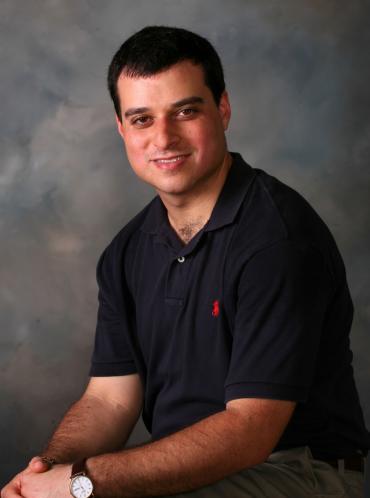Award-winning author on the spectrum's advice on transition to adulthood
Jesse Saperstein is a 32-year-old man with Asperger's syndrome and an anti-bullying activist. His new book is, "Getting a Life with Asperger's Lessons Learned on the Bumpy Road to Adulthood." This book is a follow up of his best-selling debut book, "Atypical: Life with Asperger's in 20 1/3 Chapters."
Autism Speaks Staffer and Speaker Kerry Magro sat down with Jesse to discuss his new book and what he's doing in the autism community today.
Hey Jesse, tell us a little bit about your book coming out today.
Jesse Saperstein: “Getting a Life with Asperger’s” contains a lot of personal anecdotes just like my memoir “Atypical,” but is more of a self-help guide to help my peers make the cumbersome transition into adulthood. There were not many resources when I made the transition and I paid dearly by having to learn most lessons the hard way. (A schoolboy crush was seen as “stalking” and my benign eccentricities destroyed a human service career eight years ago.) Through writing essays about video game addiction, becoming embroiled in credit card debt, surviving job interviews and more...I hope to shave off some of the potential suffering my peers would have to experience. The most important quality I hope readers will take out of my story is the understanding that they have something to offer and deserve better if they are willing to work for it!
We really loved your book cover. It reminded us of a very vintage Super Mario theme. Can you tell us what went into the decision making of the cover?
The credit belongs entirely to the talented art department of Penguin Group (USA). They put enough of their original spin on the cover so there is no chance of Nintendo suing us for copyright infringement. Video games are a right of passage for all children, but they are infamous for taking children on the autism spectrum to the moon in unrelenting euphoria. This can turn into an unhealthy use of time, especially in this day and age, though it seems like video games were more pure in the 1980s. And life for those on the autism spectrum (or anybody) should mimic the old school games like Super Mario or Donkey Kong. There are battles without violence as you jump over cartoonish monsters that could represent fears or other obstacles. In some of these nostalgia-enriched virtual realities, it is impossible to “beat the game,” so that may be frustrating. On the other hand, there is also no finish line to create complacency or resting on our laurels. The improvement is always consistent because we strive to do better the next time.
Your book has advice for people with autism transitioning to adulthood. Which topic should our community do a better job spreading awareness about?
The rate of unemployment is a statistical plague among those in the autism community. In fact, the number of individuals who are unemployed or grossly underemployed ranges from 80-90 percent. Too many individuals succumb to disability payments when they are not truly disabled and the world is lost without their contributions. Choosing to accept Social Security Disability Insurance (SSDI) may prevent individuals from searching for meaningful work in fear of losing these benefits. As far as I know, there are some loopholes such as the Ticket-to-Work Program that allow people to maintain employment and still receive some form of SSDI. I intend to do more research and there is a lot of information in the Partners in Policymaking (PIP) class that I am currently taking. It is also important to work even if the only options are hardly ideal. Over the past ten years, I have been a 12-hour night shift worker at an IBM complex, an assistant mortician, a dishwasher and a group home employee.
What do you hope our autism community, especially young adults with autism. will take away from reading your book?
The best way to become successful with autism (or any challenge) is to understand that you have something profound to offer and do not deserve to be judged on some of the past struggles that once crippled your progress. Having momentum is also important because people are more vulnerable toward problems during periods of idleness. Most importantly, it is critical to understand that there will always be a small minority of people who will never appreciate your positive qualities or even care how much progress you have made. And one of these days, maybe I will learn this myself and fully practice what I preach. I say this advice because much of my population still holds onto lingering trauma from a lifetime of bullying and social isolation.
What's next for you? Any fun book promotional stuff on the horizon?
I am on a book tour for the next three months and have the chance to meet many different people from the autism community in places like California, Boston, Buffalo and Albany. My next book idea is to work with someone who is morbidly obese while helping them earn their life back. If this is not practical, I would like to attempt a hike of the 2,600-mile Pacific Crest Trail because I was able to complete the 2,174-mile Appalachian Trail back in 2005. Regardless of what happens, the effort will hopefully show people how the qualities of Asperger’s that were once rejected could be the main thing that leads to success.






